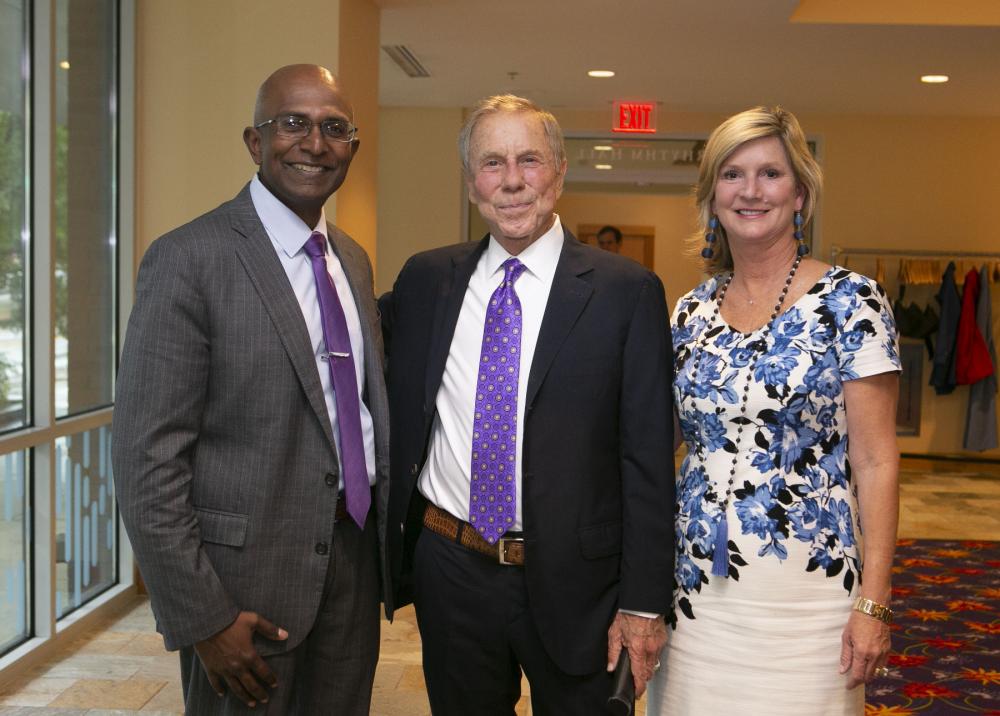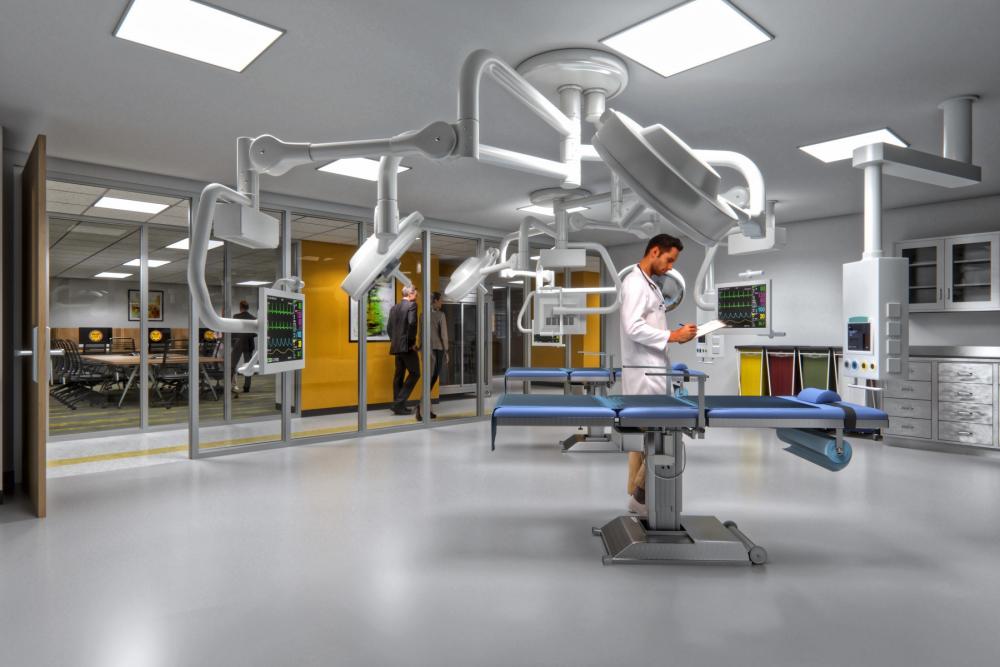Filling Life with What Matters: How a Grateful Patient is Impacting the Future of Surgery
If your life were to be saved one day, and you found yourself filling time that possibly could have gone by without you, what would you do? What would you gravitate to in each of your additional days?
For David Cottrell, who arrived at the VCU Medical Center in 2014 with what he thought was the flu — then learned he had a staph infection that led to bacterial spinal meningitis, multiple strokes and the beginning of multisystem organ failure — the answer has been clear since he recovered.
“I have been able to retire, spend more time with my family, travel and focus on the things I love,” he said. “I was able to walk my daughter Leah down the aisle. I owe the team at VCU my life.”

The interdisciplinary team at the VCU Medical Center that saved David’s life that year was ready to provide the complex care that he needed, which included three open-heart surgeries, because it was part of an integrated, comprehensive academic health center that focuses every day on world-class patient care, research and education.
This May, understanding the importance of such an enterprise to their own community, David and his wife Christy added an additional item to the list of how they’re spending their time and resources. They’ve decided to give back to the academic health center that saved David’s life in order to ensure the next patients, and indeed the next generation, have the chance to savor their own additional days.
On May 17 of this year, David and Christy announced a $1 million gift to support and name the Christine B. and David E. Cottrell Surgical Innovation Laboratory at the VCU School of Medicine. Once completed, the 6,000-square-foot lab will support the latest in surgical education, research and testing services, and it will be open to the School of Medicine, School of Pharmacy and the College of Engineering for surgical needs and studies that translate basic research into useful clinical aids.
The lab’s three main components will be a surgical education center featuring advanced surgical and human simulation technologies, a surgical testing center for researching novel devices and drugs for human use, and an organ reanimation laboratory where kidneys, livers, pancreases and hearts can be reconditioned for transplant.

“One unique aspect of the lab is the multifunctionality of the space,” said Martin Mangino, Ph.D., professor and associate chair of research in the Department of Surgery. “We can run a very sophisticated surgical innovation program under one roof. We’re educating, we’re coming up with ideas, we’re translating those ideas into useful clinical aids to help our patients, and we’re offering services for ourselves and other industry partners.”
Another significant characteristic of the lab is its physical location. The space it will occupy in Sanger Hall is the former lab of Richard Lower, M.D., and his research partner Richard Cleveland, M.D. Through his research in California and on the MCV Campus, Dr. Lower pioneered heart transplantation for the world.
The Cottrells’ gift to support and renew this catalytic space is a leadership gift, meaning they’ve planted a seed that needs significant community involvement before it can grow. The total cost of the renovation is $5 million, so there are still opportunities for inspired individuals, organizations and friends to influence the next evolutions in surgery, which will begin right here in Richmond and inform practice around the world.
Any size gift will make an impact and move researchers and students one step closer to learning and innovating inside the suite. One way to make a gift is online at https://www.support.vcu.edu/give/MCVF, where you can scroll to the bottom of the dropdown menu to select search and enter “Surgical Innovation Laboratory Fund.”
Gifts at certain levels offer opportunities for donors to be included on a recognition wall in the suite and to name individual research spaces. For more information about these opportunities, contact Carrie Mills at 804-828-0423 or carrie.r.mills@vcuhealth.org.
Philanthropy is a central component of the life-saving care, research and education that we see every day on the MCV Campus. Whether it’s leaving a legacy through a planned gift, honoring a loved one with an endowment or donating annually, those who contribute directly impact lives. To learn about the all the ways you can make an impact, visit our giving page.